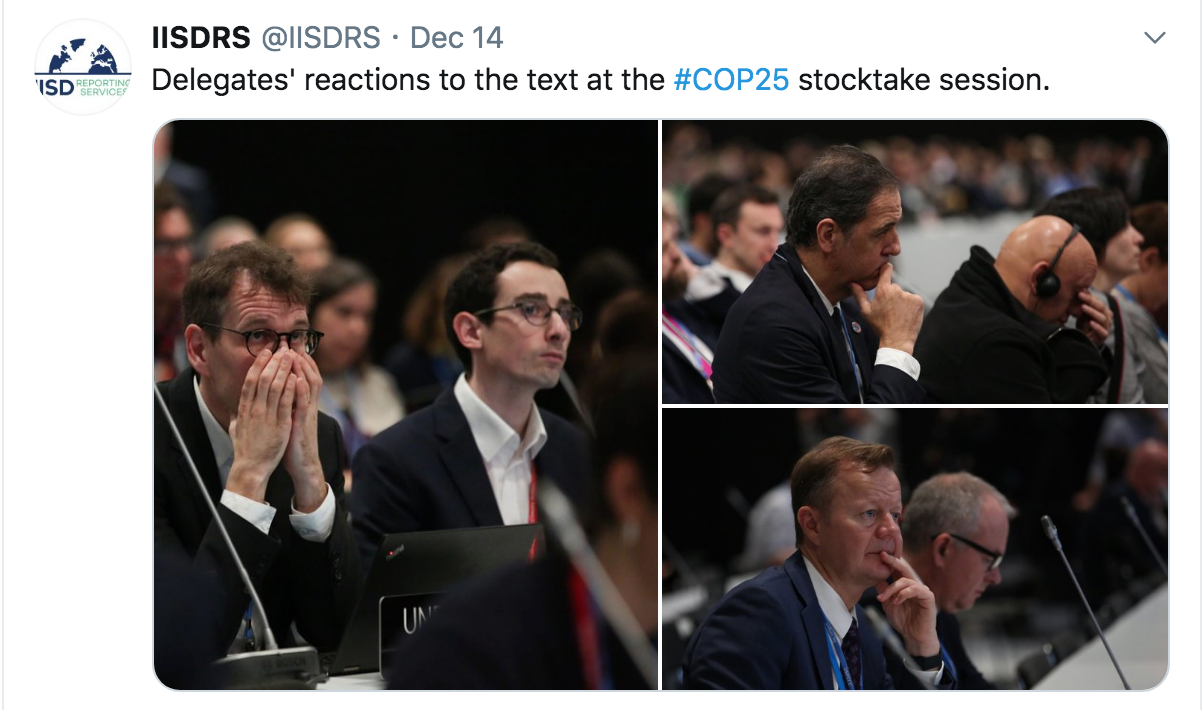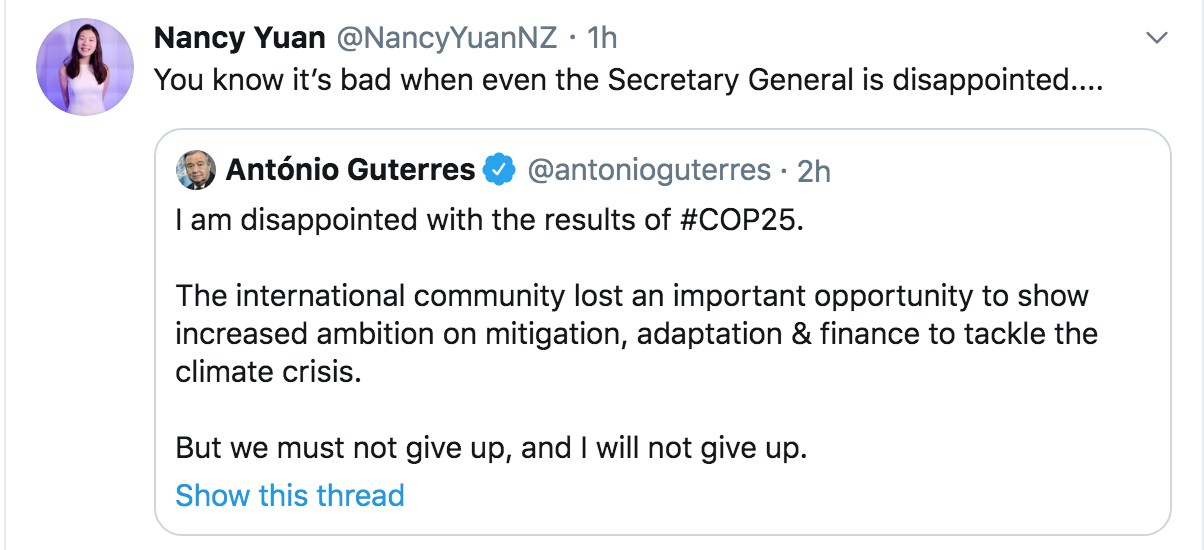COPs often run overtime, which is why CAN even holds a wager for delegates to guessing the date and time COP will end. Earlier this week, we knew the negotiations in Madrid were expected to be prolonged especially when word circulated that staff at the venue had been asked to work over the weekend. We did, in fact, witness how negotiations dragged on because governments with large emissions dragged their feet on targets. Ultimately, the lack of consensus prolonged COP25 to such an extent that this is now the longest ever meeting in UNFCCC history.

Perhaps, these negotiations have been hampered from the get-go by everything ranging from adversaries to the negotiation strategy employed. The Chilean Presidency’s approach to the negotiations has been criticized for not using their office to have set higher ambitions, knowing that “blockers” would want to reduce the targets, and compromise can be reached somewhere in the middle.With the immense and imminent impacts of climate change, old tactics of incrementalism no longer meet the challenges the world faces.
However, what transpired was that the Chileans had expected other governments to lift ambitions so shad et the initial targets too low, which meant a far more difficult uphill battle in the negotiations. Now we are left with a COP that was supposed to be focused on “Ambition” and “Action,” but has not delivered on neither. Even the UN Secretary-General has voiced his disappointment.

There is already enough analysis out there offering a breakdown of the watered-down outcome of COP25, so I’ll touch on more of my personal takeaways from attending the conference from my positionality in a follow-up post. Now more than ever, we need to remain hopeful and not be daunted by the challenges ahead in our fight for climate justice.